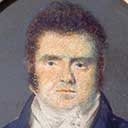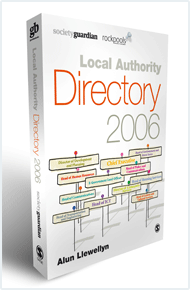 Guardian History Timeline
Guardian History Timeline
1821 John Edward Taylor publishes the first Manchester Guardian on 5 May 1821 as newspaper in the liberal interest. The newspaper is published weekly on a Saturday at a price of 7d.
1855 Stamp Duty tax on newspapers is abolished allowing the Guardian to publish daily, Monday to Saturday, at a reduced price of 2d.
1872 Charles Prestwich Scott becomes editor of the Guardian, a post he holds for 57 years. CP Scott is a liberal thinker with strong principles "Comment is free, but facts are sacred. ...The voice of opponents no less than that of friends has a right to be heard."

1907 Following the death of John Edward Taylor's son in 1905 CP Scott buys the Guardian. He is both owner and editor.
1919 On 4 July 1919 Guardian Weekly is launched to provide a compact weekly edition of the newspaper.
1929 CP Scott retires as editor in favour of his son Ted.
1932 Ted Scott dies in a tragic boating accident and William Perceival Crozier is appointed as editor.
1936 Ownership of the Guardian is transferred to a trust. The Scott Trust ensures the independence of the newspaper and continues the journalistic principles of CP Scott.
1944 On WP Crozier's death, Alfred Powell Wadsworth becomes editor.
1953 On 3 June 1953, the day after the coronation of Queen Elizabeth II, David Low's 'Morning After' cartoon appeared in the Guardian. The cartoon sparked controversy and many letters from readers, two-third of which critical asking "how low can Low get?".
1956 Alastair Hetherington becomes editor following Wadsworth's death.
In contrast to the majority of the British press the Guardian criticises the Governments military action in Suez. Readership increases by 10%.
 1959
1959 On 24 August 1959 the newspaper changes its title from the Manchester Guardian to the Guardian, to reflect the growing importance of national and international affairs in the newspaper.
1961 To enable swifter delivery of the Guardian to southern England the newspaper begins printing in London as well as Manchester on 11 September 1961. Difficulties with the printing system earn the newspaper the nickname 'The Grauniad'.
1964 The editor's office and major editorial departments relocate from Manchester to London.
1965-66 Financial difficulties lead to discussion with the Times on a possible merger of the two newspapers. The Scott Trust throw out the proposal.
1970 On 29 August the Guardian moves from its home in Cross Street, Manchester to new offices in nearby Deansgate. The Guardian had been written and printed from its Cross Street building since 1886. The Manchester office remains at Deansgate.
1975 Peter Preston is appointed editor.
1976 The Guardian moves to its current London home at 119 Farringdon Road.
1983 A Foreign and Commonwealth Office clerical officer gives the Guardian documents on the movement of nuclear weapons. The Guardian is taken to court and ordered to reveal their source and Sarah Tisdall is imprisoned for six months.
1988 The Guardian has a radical redesign, splitting the newspaper into two sections and introducing a new masthead. An international edition is launched in Europe.
1995 Alan Rusbridger becomes editor.

1997 The Guardian's investigation into conservative MP Neil Hamilton wins the Team Reporting Award at the British Press Awards and the Guardian is named Newspaper of the Year by What the Papers Say, an award it also wins in 1998 and 1999.
The Guardian is the first national newspaper to appoint a readers' editor, producer of the daily Corrections and Clarifications column.
1999 Guardian Unlimited network of websites is launched in January. By March 2001 GU has over 2.4 million unique users, making it the most popular UK newspaper website.
2001 The Guardian wins widespread acclaim for its coverage of the events of 11th September proclaimed "bold, simple and courageous" at the British Press Awards.
2002 The Newsroom, Guardian and Observer Archive and Visitor Centre, opens its doors. The centre preserves and promotes the histories and values of the newspapers through educational programmes, exhibitions and research.
2003 Life, a new Thursday science and technology supplement, launched. A daily Media Business page was introduced.
2004 Digital editions of the Guardian and the Observer, online replicas of the newspapers, launched. The paper also introduced a weekly tabloid edition aimed at students and distributed through university campuses across the UK.
2005 The new Guardian launches, with a ground-breaking design in a mid-size format. The Guardian becomes the UK's first full-colour national newspaper, and the first UK national newspaper ever to adopt this size.














